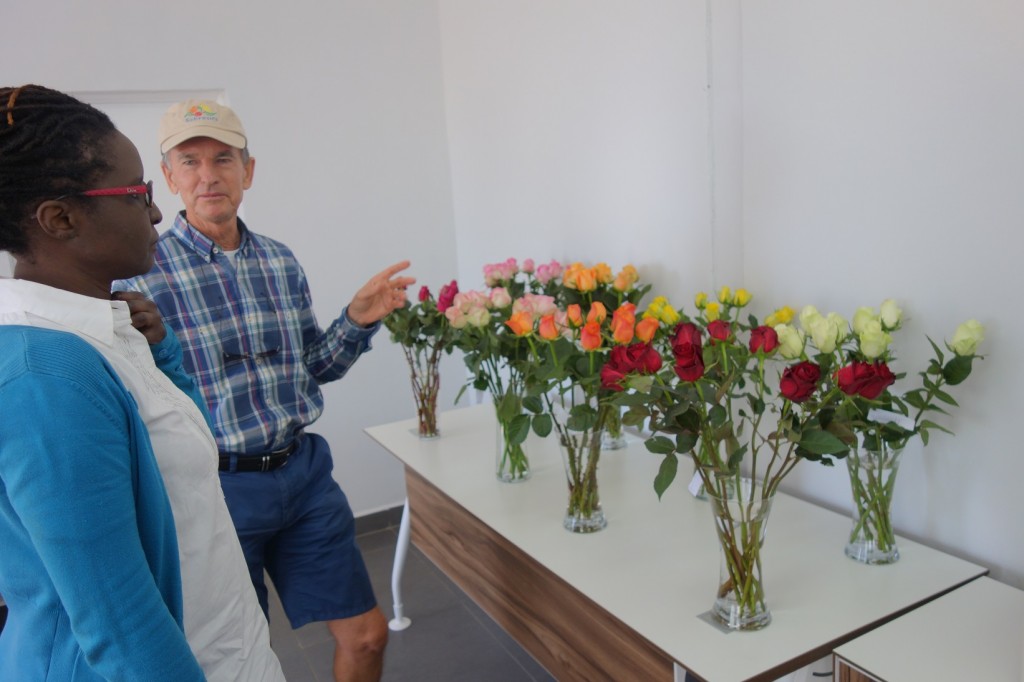
Simon, the owner of Timaflor, and Mary Siboe, CFO of Lewa Conservancy looking at the roses grown on the farm.
Actually, they probably came from Colombia. But if you were in Europe there is a good chance that they were grown in Kenya. Kenya exported 123,511 tons of flowers in 2012. Most of them were roses sent to Amsterdam to be wrapped and passed on to florists all over Europe. Flowers are a major industry here. Starting at about 11,000 tons in 1988, it has grown considerably.
I visited the Timaflor flower farm. Quite an impressive operation. Employing over 300 people, it has 20 Hectares (50 acres) under 10 greenhouses. Each greenhouse is 2 Hectares (5 acres) in size. Put another way about 110 x 220 yards or a little bigger than two football fields.
Inside the greenhouse are row after row of roses. Each row is harvested twice a day and blossoms the right size are cut. If a cutting is missed the blossoms grow too much and become unsalable. It’s like having a dairy farm, you don’t ever miss a day or a milking, twice a day, seven days a week, 365 days a year. The rose plant will produce buds for five to eight years.
After the flowers are cut they are sent to a cooling room until they can be counted, trimmed, and packaged for shipping. It is important that the stems get cooled quickly and stay cool until they get to Amsterdam so they stay fresh and don’t open. A refrigerated truck hauls the packed flowers to Nairobi each morning where they are put on a plane. From cutting to the flower market is about two days.
The entire operation is a mix of high tech and low skilled manual labor. The roses are watered and fertilized through a drip irrigation system. Power is supplied from the grid and solar (about 50%) with a back-up generator. The grid goes down once a week or so. Refrigeration is essential from cutting to delivery so they need consistent power. Refrigerated trucks and jumbo jets take them to market. Pests are controlled by a combination of natural and chemical means. There is one little bug that eats roses and when it is found they dust the plant with another little bug that eats the harmful bug. In addition, they spray to control other diseases as necessary but as little as possible. The harvesting, sorting, trimming, and packing are all done by hand.
So next Mother’s Day remember that while you are honoring Mom you are also providing much needed jobs and supporting many families here in Kenya (Colombia). It’s a small world.

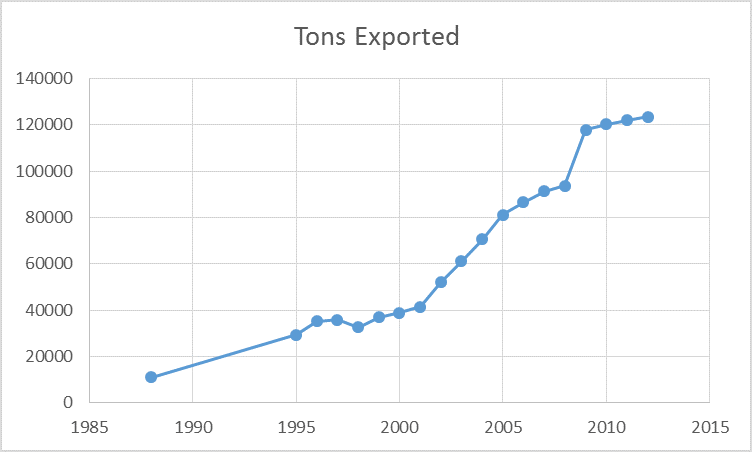
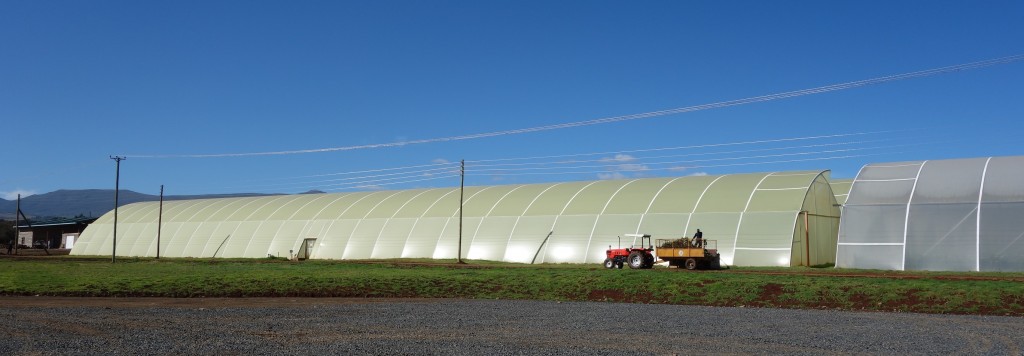
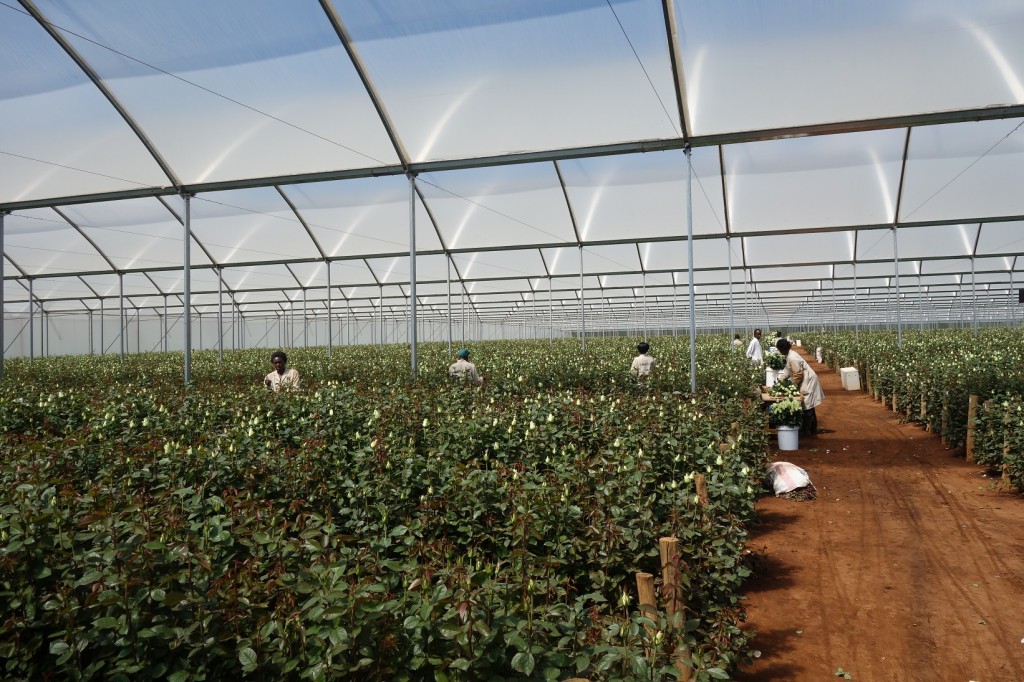
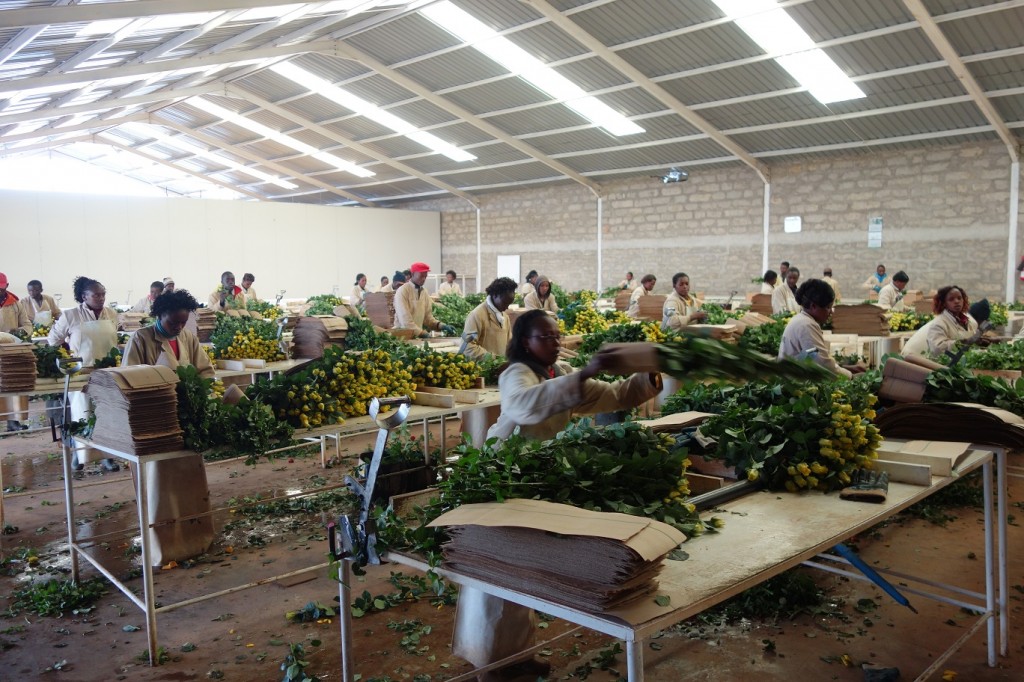
Wish I could smell all those roses. I had no idea they grew them in Kenya. Or that they had refrigerated trucks there. Pretty cool. Thanks for sharing another wondrous world post. 🙂
Electricity from the grid, paved roads, available water, experienced management – not to mention jumbo jets. I am jealous. If I had all of those things it would be easy to produce mango pulp.